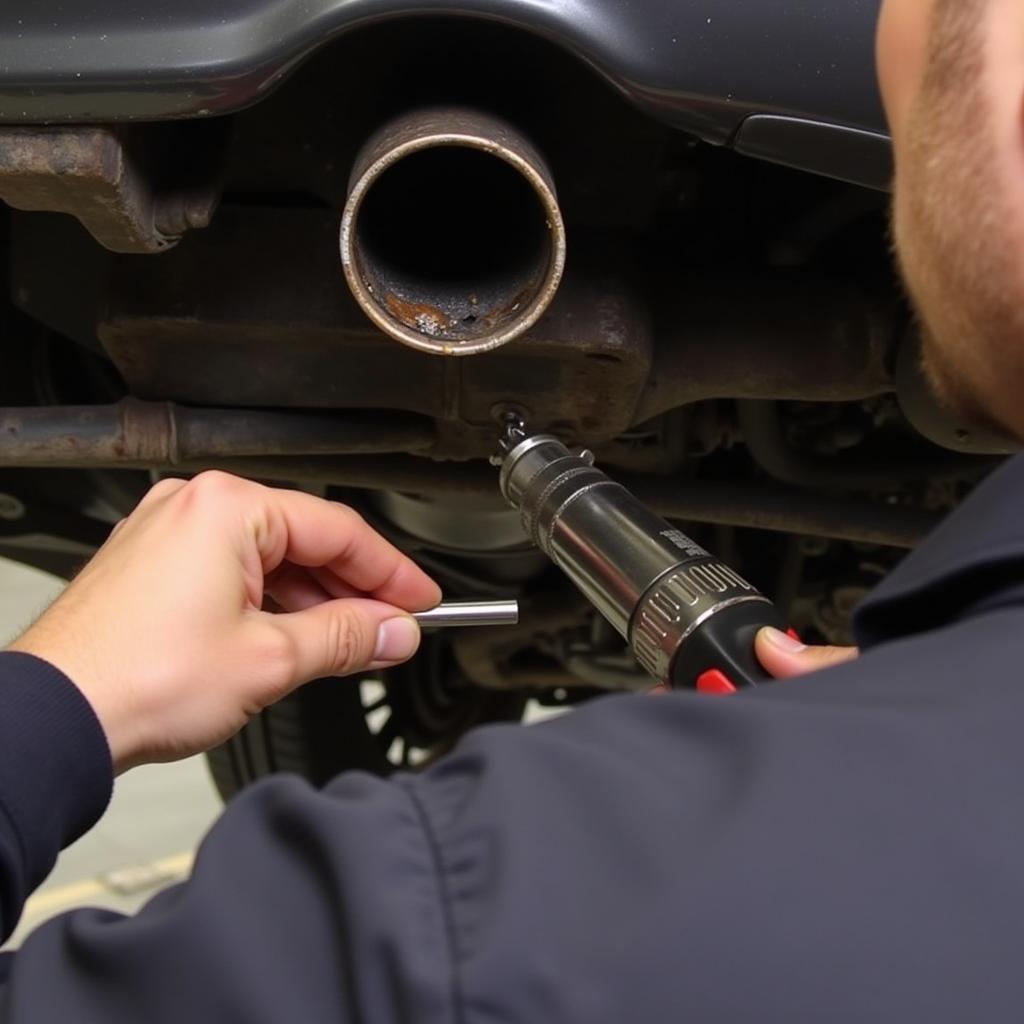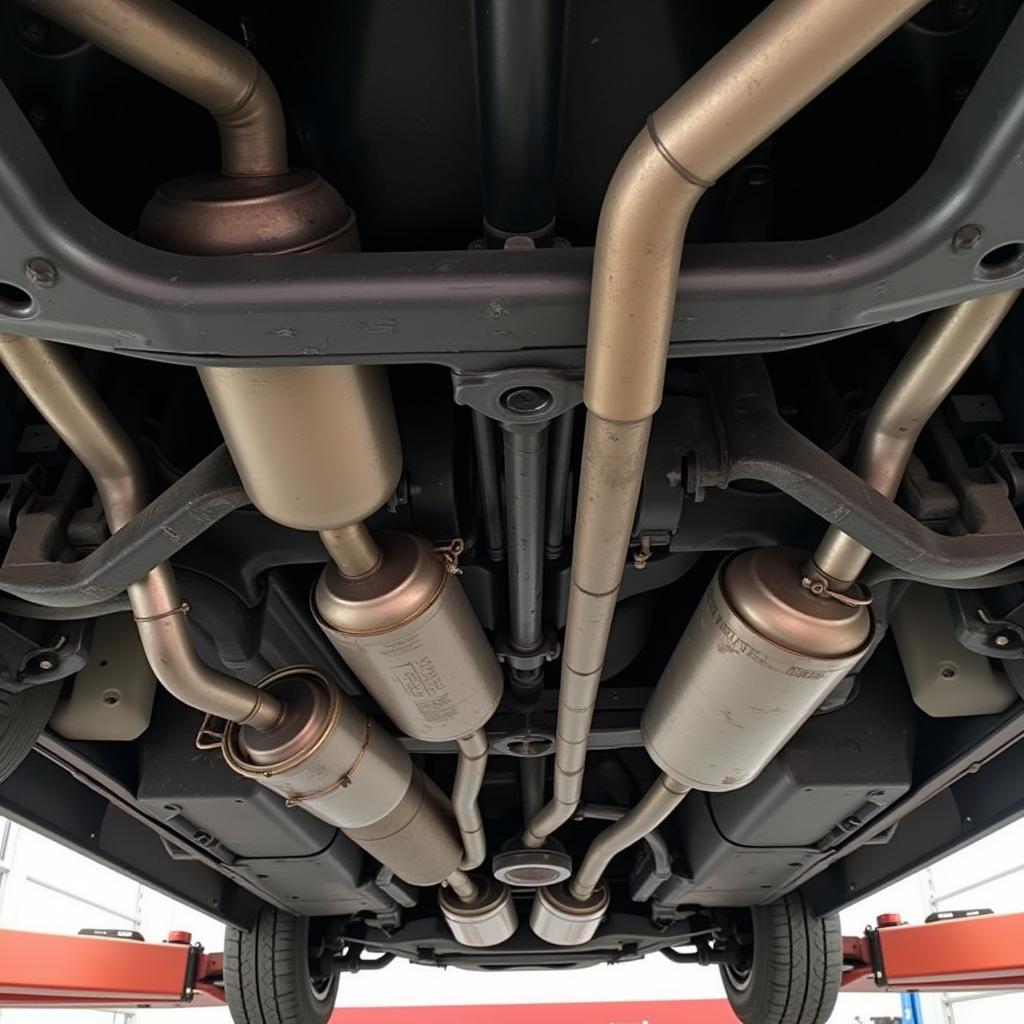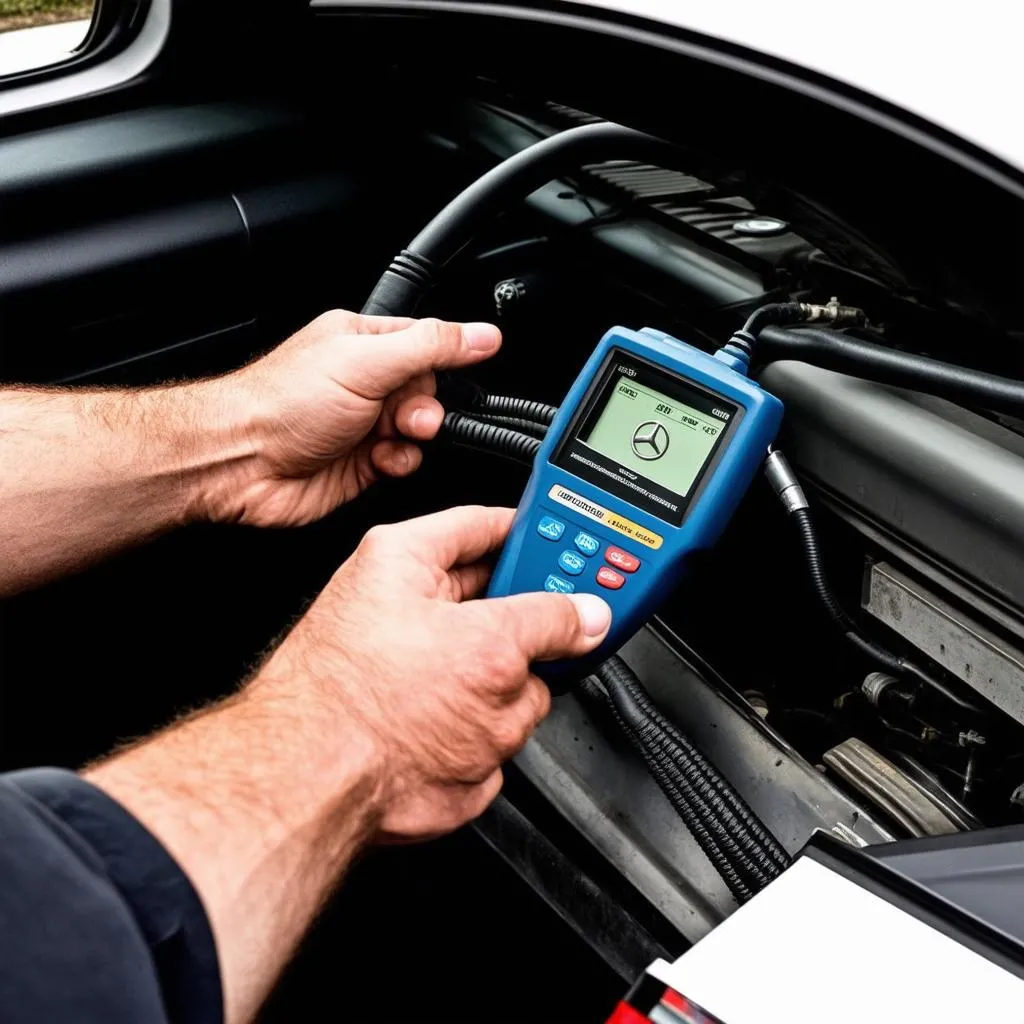If your 2002 Mercedes E320 4Matic is experiencing performance issues, decreased fuel efficiency, or that dreaded check engine light, a faulty catalytic converter might be the culprit. This article provides a comprehensive guide to understanding, diagnosing, and fixing catalytic converter problems in your E320 4Matic. We’ll cover everything from the symptoms of a bad catalytic converter to the various repair options available.
Understanding the Catalytic Converter’s Role
The catalytic converter plays a crucial role in your E320’s emission control system. It converts harmful pollutants in exhaust gases into less harmful substances before they are released into the atmosphere. This process involves complex chemical reactions within the converter, requiring it to operate at high temperatures.
Symptoms of a Failing Catalytic Converter in a 2002 Mercedes E320 4Matic
Several telltale signs indicate a potential catalytic converter issue. These include:
- Reduced engine performance: A clogged converter restricts exhaust flow, leading to sluggish acceleration and decreased overall power.
- Decreased fuel economy: The engine has to work harder to compensate for the restricted exhaust flow, resulting in lower fuel mileage.
- Illuminated check engine light: The onboard diagnostic system (OBD-II) can detect a malfunctioning catalytic converter and trigger the check engine light.
- Rattling noise from under the vehicle: Internal damage to the converter, such as a broken honeycomb structure, can cause a rattling noise, especially during acceleration.
- Sulfur-like smell from the exhaust: A strong, unpleasant odor resembling rotten eggs can indicate a failing converter.
Diagnosing a 2002 Mercedes E320 4Matic Catalytic Converter Problem
Proper diagnosis is essential before replacing the catalytic converter. Here’s what you can do:
- Check the check engine light codes: Use an OBD-II scanner to retrieve the diagnostic trouble codes (DTCs). Specific codes related to the catalytic converter, such as P0420 (Catalyst System Efficiency Below Threshold – Bank 1), can pinpoint the problem.
- Visual inspection: Look for signs of physical damage to the converter, such as cracks, dents, or melting.
- Exhaust back pressure test: A mechanic can perform this test to measure the exhaust back pressure, which can indicate a clogged converter.
- Temperature test: Using an infrared thermometer, check the temperature difference between the inlet and outlet of the converter. A significant difference can suggest a blockage.
 Inspecting the Catalytic Converter on a 2002 Mercedes E320 4Matic
Inspecting the Catalytic Converter on a 2002 Mercedes E320 4Matic
2002 Mercedes E320 4Matic Catalytic Converter Fix Options
Once you’ve diagnosed a faulty catalytic converter, several repair options are available:
- Catalytic converter replacement: This is the most common solution for a severely damaged or clogged converter. Ensure you use a high-quality, OEM-approved replacement.
- Catalytic converter cleaning: In some cases, cleaning the converter can restore its functionality, especially if the blockage is due to carbon buildup.
- Addressing underlying issues: Sometimes, a faulty oxygen sensor or a rich fuel mixture can cause the catalytic converter to fail prematurely. Fixing these underlying problems is crucial to prevent the new converter from failing as well.
Choosing the Right Catalytic Converter for Your 2002 Mercedes E320 4Matic
Selecting the correct catalytic converter for your E320 4Matic is crucial. Consider these factors:
- OEM vs. Aftermarket: OEM converters are designed specifically for your vehicle and offer superior performance and durability, but they are typically more expensive than aftermarket options.
- Compliance with emissions regulations: Ensure the chosen converter meets your state’s emission standards.
- Warranty: Look for converters with a good warranty to protect your investment.
Preventing Future Catalytic Converter Problems
Here are some tips to prolong the life of your catalytic converter:
- Regular maintenance: Follow the recommended maintenance schedule for your E320 4Matic, including regular oil changes and tune-ups.
- Use high-quality fuel: Using low-quality fuel can contribute to carbon buildup and damage the converter.
- Address engine misfires promptly: Misfires can introduce unburned fuel into the exhaust system, overloading the converter.
“Regular maintenance and using high-quality fuel are key to preventing premature catalytic converter failure,” says Hans Gruber, a seasoned automotive engineer with over 20 years of experience.
 Exhaust System Checkup on a Mercedes E320 4Matic
Exhaust System Checkup on a Mercedes E320 4Matic
Conclusion
Addressing catalytic converter issues in your 2002 Mercedes E320 4Matic is crucial for maintaining optimal performance and minimizing environmental impact. By understanding the symptoms, diagnosis process, and repair options, you can ensure your E320 runs smoothly and efficiently for years to come. Remember, a properly functioning catalytic converter not only reduces emissions but also contributes to better fuel economy and overall engine performance. Don’t ignore the warning signs; address them promptly to avoid costly repairs down the road.
FAQ
- How much does it cost to replace a catalytic converter on a 2002 Mercedes E320 4Matic? The cost can vary depending on the type of converter and labor charges.
- Can I drive my car with a bad catalytic converter? While possible, it’s not recommended, as it can damage other components and increase emissions.
- How long does a catalytic converter last? Typically, a catalytic converter should last for the lifetime of the vehicle, but various factors can affect its lifespan.
- What causes a catalytic converter to fail? Common causes include high temperatures, physical damage, and contamination from engine oil or coolant.
- How can I tell if my catalytic converter is clogged? Symptoms like reduced engine performance, decreased fuel economy, and a rattling noise can indicate a clogged converter.
- Can I clean my catalytic converter myself? While some cleaning methods exist, it’s often best to consult a professional mechanic.
- Are aftermarket catalytic converters good? Some aftermarket converters offer decent performance, but ensuring they meet emissions standards is crucial.
Need help?
Contact us via Whatsapp: +1 (641) 206-8880, Email: CARDIAGTECH[email protected] Or visit us at: 276 Reock St, City of Orange, NJ 07050, United States. We have a 24/7 customer service team.


